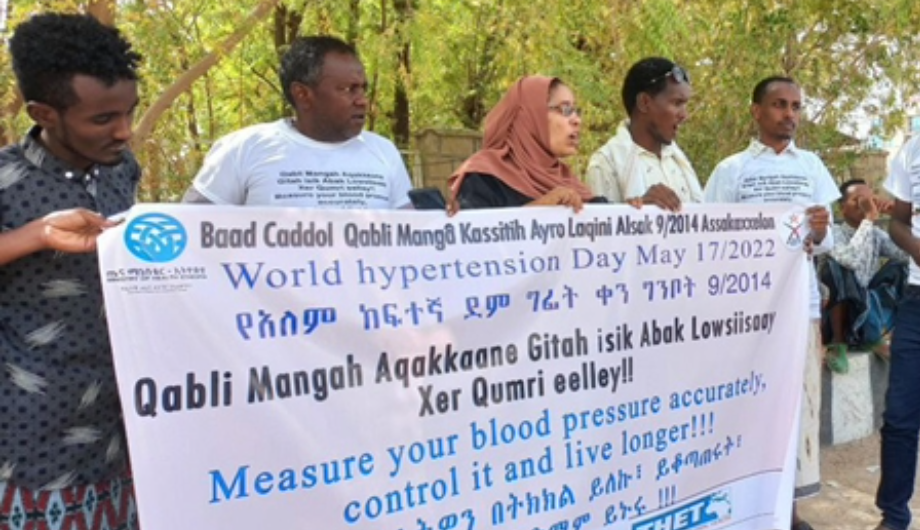Health workers in Ethiopia unite against rising unnecessary deaths due to Non-Communicable Diseases!
On by Alex Gallucci
Thousands more people are getting essential education and treatment for Non-Communicable Diseases in Ethiopia – learn more!

health workers and communities in Ethiopia, we have reached thousands of people delivering essential education and treatment to help communities tackle non-communicable diseases (NCDs). NCDs refers to health conditions that are chronic and non-contagious, such as hypertension, diabetes and epilepsy. When healthcare services are stretched, these kinds of illnesses can get overlooked with marginalised communities being most at risk of going untreated and dying unnecessarily.
Background
In Ethiopia, Non-Communicable Diseases (NCDs) are responsible for 43.5% of deaths. In addition, the number of years lost due to ill health, disability or death (commonly known as Disability Adjusted Life Years) increased from below 20% in 1990 to 69% in 2015.
Unless we act, Ethiopia will be the first among the most populous nations in Africa to experience a dramatic burden of premature deaths and disability from NCDs by 2040. However, national spending on NCDs is still significantly low, and healthcare for NCDs tends to be primarily in hospitals in major cities. With local health centres focusing on maternal and child health and treating infectious diseases, there is an absence of accessible NCD care for people living in rural or remote areas. Poorer communities in these regions often cannot face the high costs of travelling to hospitals – excluding them from receiving critical support.
What did the project do?
We worked across 15 hospitals and 45 health centres in six regions, plus a city administration, in Ethiopia – improving access and availability of high quality NCD services.
Working closely with Ethiopia’s Ministry of Health, we strengthened local and smaller health clinics by training GPs and nurses to provide treatment to people with NCDs. Before this could only be done by specialists at hospitals. By supporting health workers to identify gaps in delivering NCD care in these facilities and training community health workers, we removed some of the pressure on specialists and secured accessible, essential healthcare for people living far away from hospitals. By training GPs, that they are then able to share their knowledge to other primary health care workers, such as nurses and health officers. This will lead to more people being reached and accessing essential healthcare. As a result, over 600,000 people were screened and over 54,000 enrolled for treatment.
Alongside Health Extension Workers, we created opportunities to engage with figures within churches and mosques as well as community leaders. Together we have been holding awareness raising events to reach communities more broadly and encourage people to get tested and ask for help. Topics addressed included education on what NCDs are, major risk factors, available services at health centres and the referral process for more nuanced support. Over 600,000 people were reached – in the process 25,000 copies of brochures and 1,000 posters were distributed.
For a more in depth look at the project, read the Impact Report
As a result of this project, it will now be easier for thousands more people to access NCD health services, helping to reduce the number of NCD related deaths across Ethiopia. There is a growing movement within local authorities, health services, and the Ministry of Health to focus on NCD care and ensure that the work we have helped start continues.
Please note: the statistics quoted in this blog come from this report written by THET, an organisation we partnered with. THET’s report summarises the project’s full impact, whereas the other report only reflects on the project’s impact for the second half of the project.

